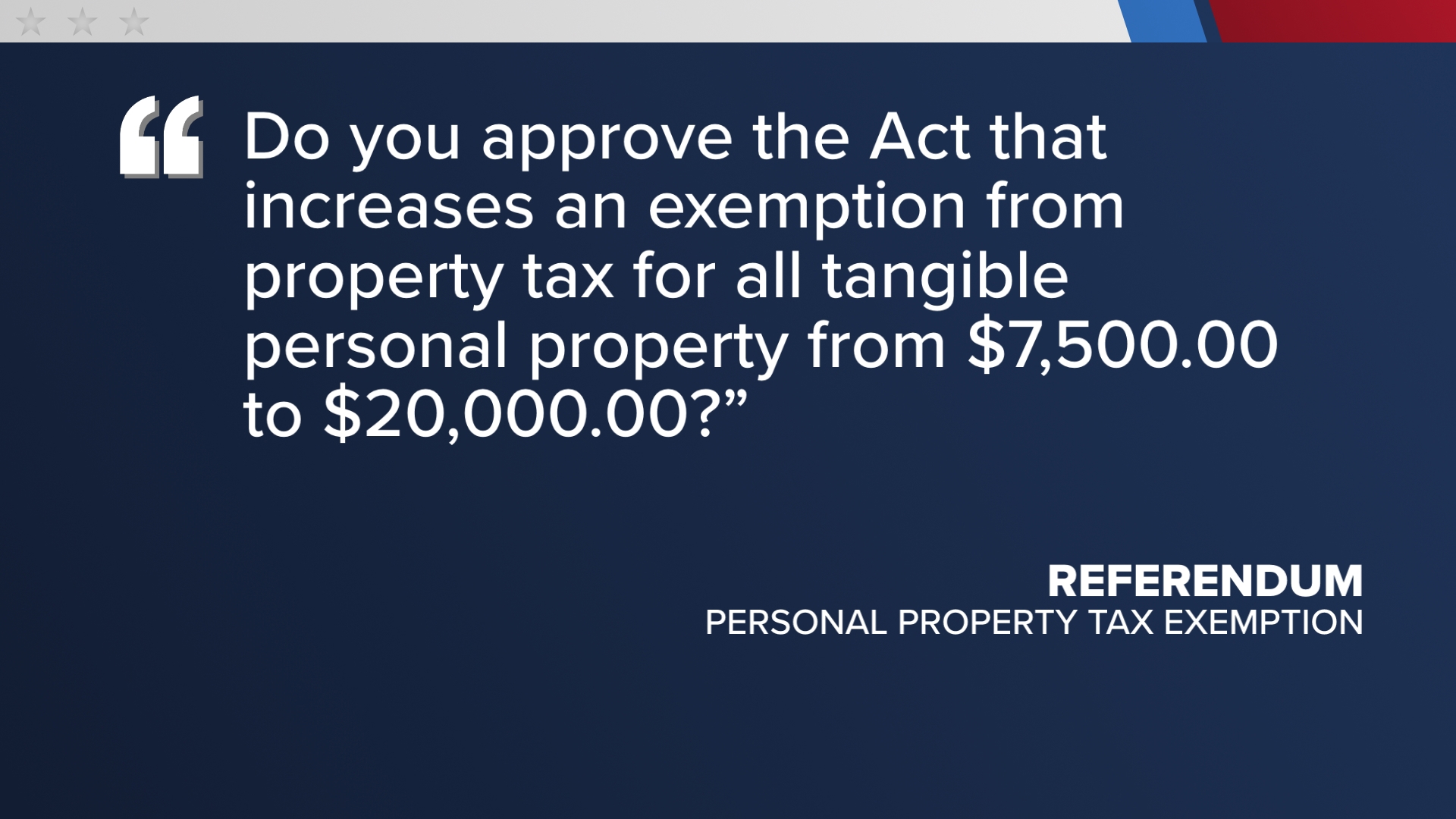MACON, Ga. — Georgians went to the polls on Tuesday and during early voting. While the contest between Kamala Harris and Donald Trump was the main event, there were three questions that the General Assembly placed on the ballot for voters' consideration.
Two questions were constitutional amendments — which become law if voters give it the thumbs up — and one referendum question, which essentially gauges voter sentiment and does not become law if voters approve.
Here's a look at what the ballot questions do and what voters decided on these important ballot measures.
Constitutional Amendment 1: Homestead exemption
On the constitutional amendment front, voters voted "yes" or "no" on this question:
"Shall the Constitution of Georgia be amended so as to authorize the General Assembly to provide by general law for a state-wide homestead exemption that serves to limit increases in the assessed value of homesteads, but which any county, consolidated government, municipality, or local school system may opt out of upon the completion of certain procedures?"
After the ballots were counted, yes won by a landslide, amending the Georgia constitution.
Results
Yes: 62.93% - 3,080,093
No: 37.07% - 1,814,547 votes
This measure would essentially tie property value increases with inflation, assuming that the residence is eligible and applies for the homestead exemption. That is a tax cut on a property that serves as a person's main residential home.
So if your home's value increases faster than inflation, this measure intends to cap the increase in property values to inflation.
However, local municipalities and boards of education are able to opt out of this measure. So whether that will impact you hinges on your local government's actions.
RELATED: What's Georgia's 'homestead exemption' ballot question asking? Here's an explainer, in plain English
Constitutional Amendment 2: Georgia Tax Court
On election day, voters were asked to consider this: "Shall the Constitution of Georgia be amended so as to provide for the Georgia Tax Court to be vested with the judicial power of the state and to have venue, judges, and jurisdiction concurrent with superior courts?"
"Yes" expresses approval of the tax court and "no" indicates disapproval. In a tight race, the "yes" eeked out a victory.
Results
Yes: 51.88% - 2,513,268 votes
No: 48.12% - 2,330,826 votes
This measure would create a new Georgia Tax Court, which supporters argue would help streamline the appeals process for people dealing with the Georgia Department of Revenue.
Currently, taxpayer appeals go from the Department of Revenue's decision to the first step in the appeals process in Fulton County Superior Court, because that's where state government functions are based. The appeal then goes to the executive branch's Georgia Tax Tribunal and finally to the Georgia Court of Appeals.
After this measure was passed, the idea is appealing would go straight to the Georgia Tax Court, which would replace the Georgia Tax Tribunal. That reduces one stop in the appellate process by avoiding Fulton County Superior Court, which supporters argue will save taxpayers time and money.
Ballot question: personal property taxes
Voters were asked the following: “Do you approve the Act that increases an exemption from property tax for all tangible personal property from $7,500.00 to $20,000.00?”
Right now, property worth less than $7,500 is exempt from personal property taxes. The legislature is asking whether voters think that exemption should increase to property worth under $20,000.
Results
Yes: 64.49% - 3,209,064 votes
No: 35.51% - 1,766,809 votes
Unlike the above measures, this question does not become law, simply advising the state legislator on voter sentiment on the matter.

